Almost two months since Johannesburg Mayor Dada Morero introduced his “Bomb Squad”—a team of senior administrators and public sector veterans tasked with addressing Johannesburg’s most urgent service failures — news reports suggest some early wins have landed — in Sandton. According to police and city officials, Sandton has seen improved coordination and quicker municipal responses since June. At this stage there is no miracle, but there are faint signs of action. The problem is: beyond this high-visibility zone, little has changed. And just a few kilometres south, in Marshalltown, the City Centre's historic core, a lethal bomb is quietly ticking.
Over the past few months, there have been a number of news items that point to a trend of city officials on the hunt for ways to squeeze money from wherever they can, from plans to sell off precious public land and green spaces to extortionate rate evaluations. And all the while we see around us a city in dire need of maintenance and upgrading. Where exactly does Joburg's more than R80 billion budget go? For residents, it's a mystery as compelling as the Bermuda Triangle or the omnipresence of the Kardashian family.
With that in mind, we set out to explore more about the potential fate of the Rand Club, and to find out what we can all do to help shift it.
We often wonder what it would be like to do our job in a functional city, rather than in a place where those who should be the custodians of one of Africa's most diverse and cosmopolitan metropolises are the equivalent of the handsy uncle your parents warned you about.
An article published by Currency News (Jul 18, 2025) broke the story of the recent highly contentious property valuation of the historic Rand Club in Joburg's City Centre. A staggering R23.8 million is the current figure put forward by the City of Joburg, nearly three times the value of just two years prior. The hike came after the club appealed the value from two years ago, which is an interesting way to manage an appeals process. Make it as punitive as possible.
The significance of Joburg's Rand Club
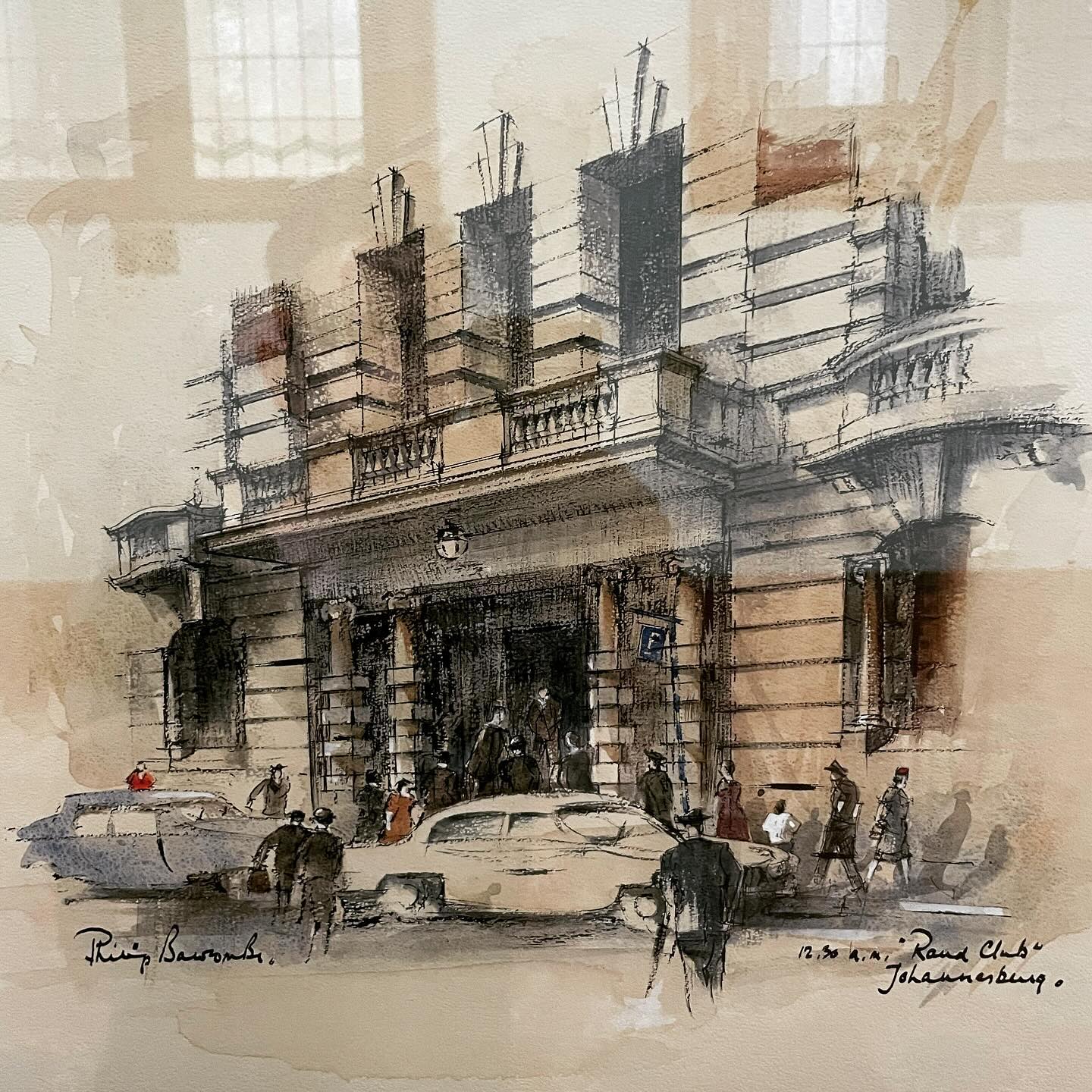
We reached out to Brian McKechnie, a heritage architect and the club's chairperson, for comment. "So much of Johannesburg's history is entwined with the history of the Rand Club," McKechnie says. "In addition to that, we're probably the last remaining [historic] formal business in the City Centre. We're a reminder of what the city was and a beacon to the promise of what the city can become."
Founded in 1887, the Rand Club in Marshalltown is only one year younger than Johannesburg itself.
In it's lifetime the club has played host to key events in the city’s political history – including the planning of the 1895 Jameson Raid – and its members have included names like South Africa's first democratically elected President Nelson Mandela and President Cyril Ramaphosa.
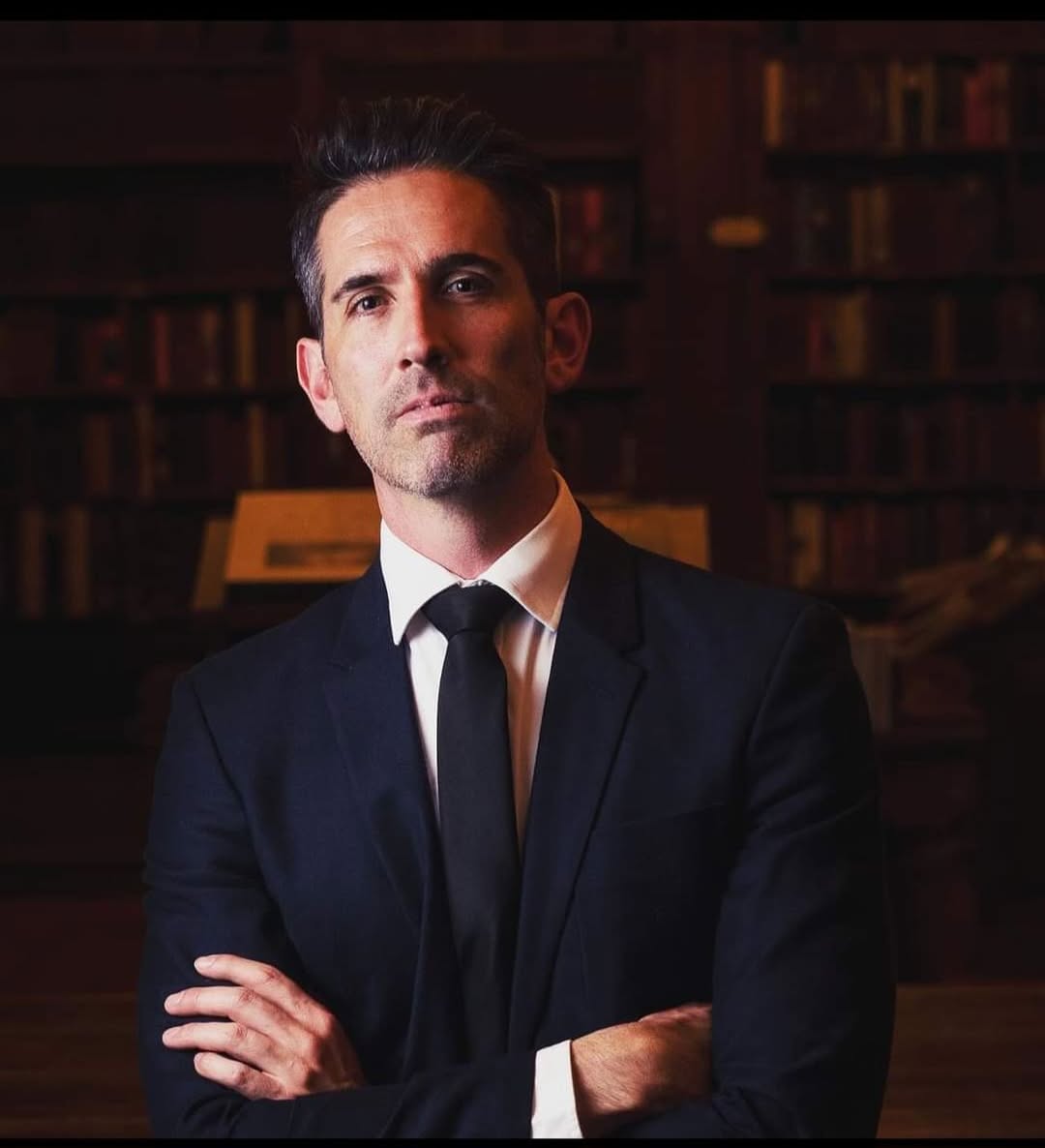
Despite the ongoing mass exodus from Joburg's CBD, the Rand Club remains beautifully maintained and well managed, hosting exhibitions, jazz nights, private and public events, and it remains open to all.
"We also have an incredibly diverse and interesting art collection, and a spectacular library. It's a wonderful cultural resource," says McKechnie.
Former Rand Club chairperson Alicia Thompson adds: "I joined Rand Club in 2012, and it opened Joburg up for me in a way that the previous 28 years of democracy could never have done. The depth of our Joburg heritage will be lost if places like Rand Club are allowed to be destroyed by the City which, ironically, owes its birth to institutions like the Rand Club."
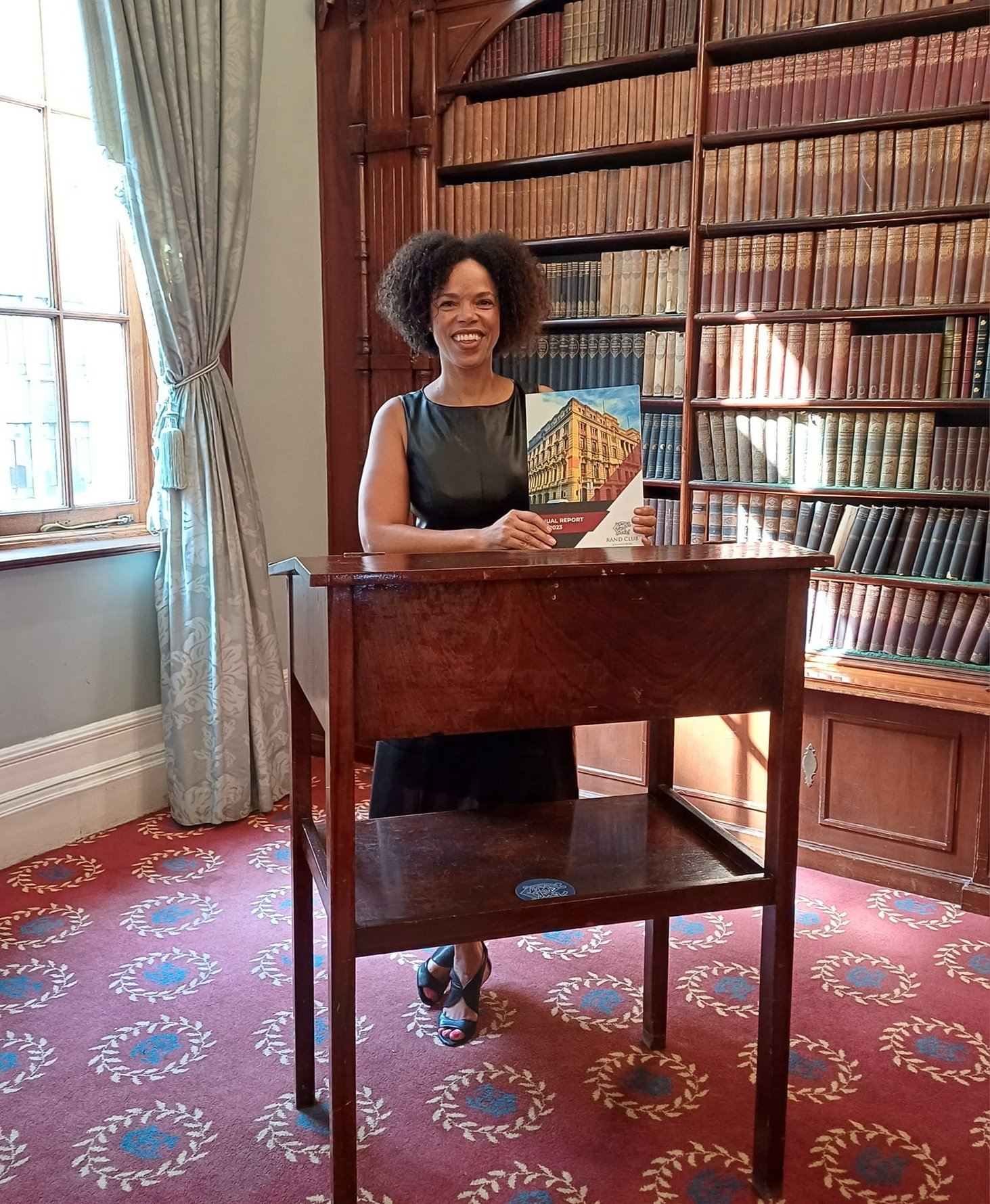
It has not escaped notice that Mayor Morero, under whose administration this valuation was enforced, regularly holds meetings at the club and has shared photos of them online.
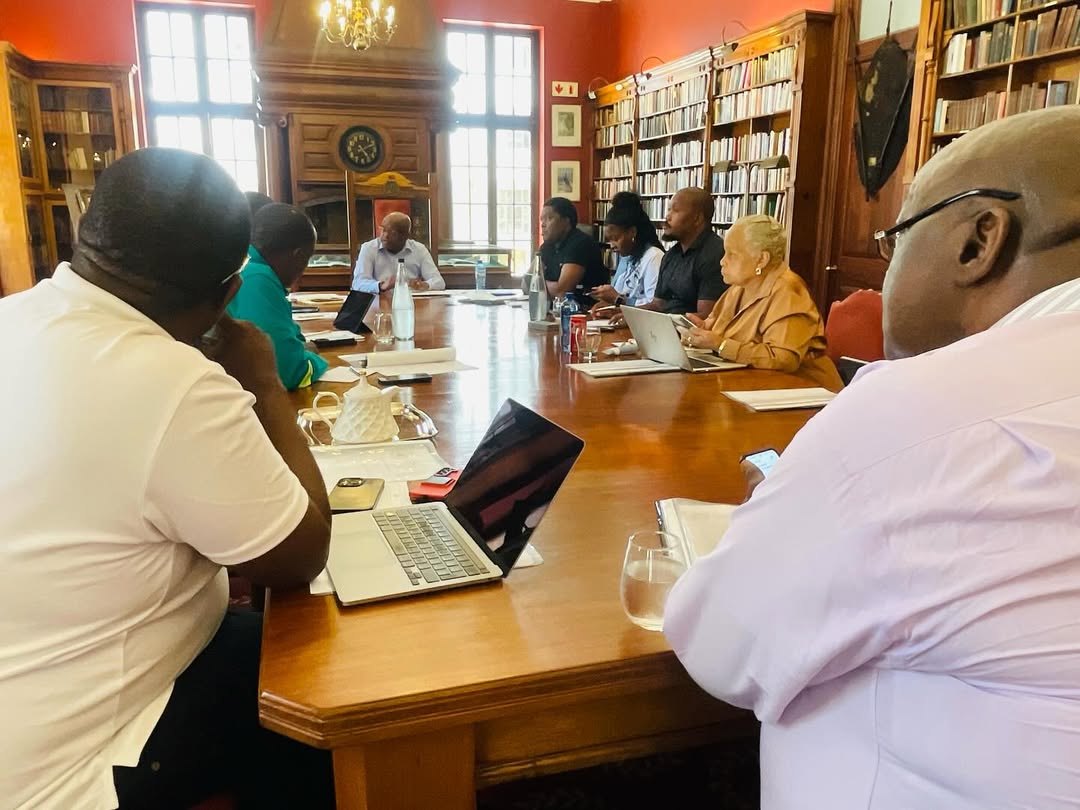
Step outside and take a walk through the city from here and the contrast is stark. As Currency News puts it: "It’s like a scene from the movie District 9. Shards of shattered pavement and red earth spill into the road and are eclipsed by tatty bricked-up storefronts, haphazard fragments of missing tarmac, and an unidentifiable liquid running down the road."
The bigger picture: What this signals for the city
Sadly, this isn’t unique. City infrastructure is failing, services are collapsing, and instead of addressing this, Joburg’s administration seems laser-focused on extracting funds. Nowhere is immune.
A Gauteng High Court recently instructed the City to reassess its R10.1 billion valuation of Sandton City mall. Meanwhile, attempts to sell off green spaces like Marks Park, Melville Koppies and the Johannesburg Botanical Gardens have made headlines. This isn't governance, it's asset stripping.
The Springboks vs City of Joburg – Whose Bomb Squad wins the prize?
We think the city needs to apologise to our national rugby team, the Springboks, whose Bomb Squad came on to win when it mattered most. The mayor's version appears to have been activated for November optics and only where the cameras will be, to reassure international delegates and investors that Johannesburg is under control. But cities can’t be stabilised in selective patches. True urban repair is not ornamental.
The value of what remains
And this brings us back to the Rand Club. For more than a century, the Club has stood as a living memory of Johannesburg’s layered history — a space of conversation, reflection, culture and connection. It is not a relic, but a working symbol of continuity. Over the past few years the club has hosted debates, performances, and exhibitions, drawing both the old and new Johannesburg into shared space.
To see it priced out of existence is not just tragic – it is emblematic of a city abandoning its own institutions in favour of short-term polish.
Joburg has done this before. It watched as Maboneng flickered and dimmed. It applauded the Marabi Club’s ambition, then let it close. It saw Braamfontein have its edge blunted by poor policing and business exits. And now, it risks losing Marshalltown’s last civic outpost, even as City officials pose within its wood-panelled rooms.
What does this mean for the immediate future of the Rand Club?
Since the story broke on Currency, followed by an interview on MoneyWeb, a number of organisations and individuals have come forward offering different means of support – including the Joburg Property Owners and Managers Association (JPOMA) and legal professionals.
We asked McKechnie what else could be done. "If someone from the Joburg valuations department or the mayor's office is reading this, they could just correct our valuation to a realistic figure in line with surrounding properties in the city, which the Rand Club would be able to afford," he jokes. Mpre seriously, failing this, the most likely next steps involve taking the City to court to reopen the appeals process and, once again, revisit the valuation. It will be a costly and bruising process regardless of the outcome.
A city of quiet abandonment
To understand what’s at stake, take a drive across the city. Head along Jan Smuts Avenue to what was once Joburg's proudest stretch of art galleries. Detour through the suburb of Saxonwold and into Parktown North. Head in a different direction to Riviera and Killarney, and then on to Yeoville. You'll notice pavements cratered by stalled water repairs. Water mains rupture with such regularity that geysers erupt from sidewalks like rogue fountains in a failing Las Vegas. In some areas, the streets resemble war footage more reminiscent of the aftermath of Russian bombings in Ukrainian towns.
Having experienced the 2010 World Cup, it wasn't that long ago that this city was proudly “ready to host the world.” It has taken just 15 years to turn Joburg from one of the world's biggest man-made forests, where we used to boast that one of the safest things to do is drink tap water, to a truly "man-made" disaster area with water as cloudy as Tórshavn, capital of the Faroe Islands, said to be a place that's overcast for 80% of the year. We had to look that up.
Unfinished business
The decline of Johannesburg is not a passive act of time. It is the result of decisions. The city doesn’t just crumble; it is allowed to. But to reduce Joburg’s story to ruin is also incomplete. Rand Club’s threat of closure should not only spark grief, but galvanise protection. What can you do? Go visit. Book for an event or host your own in one of the glorious rooms, invite friends for a drink at one of the city's oldest bars, and the longest bar in Africa. The club is open from Tuesday to Saturday from 12:00 – 20:00 and welcomes members and non-members alike. Explore membership. It comes with plenty of benefits. Follow the club on its social media pages to stay updated with the latest news.
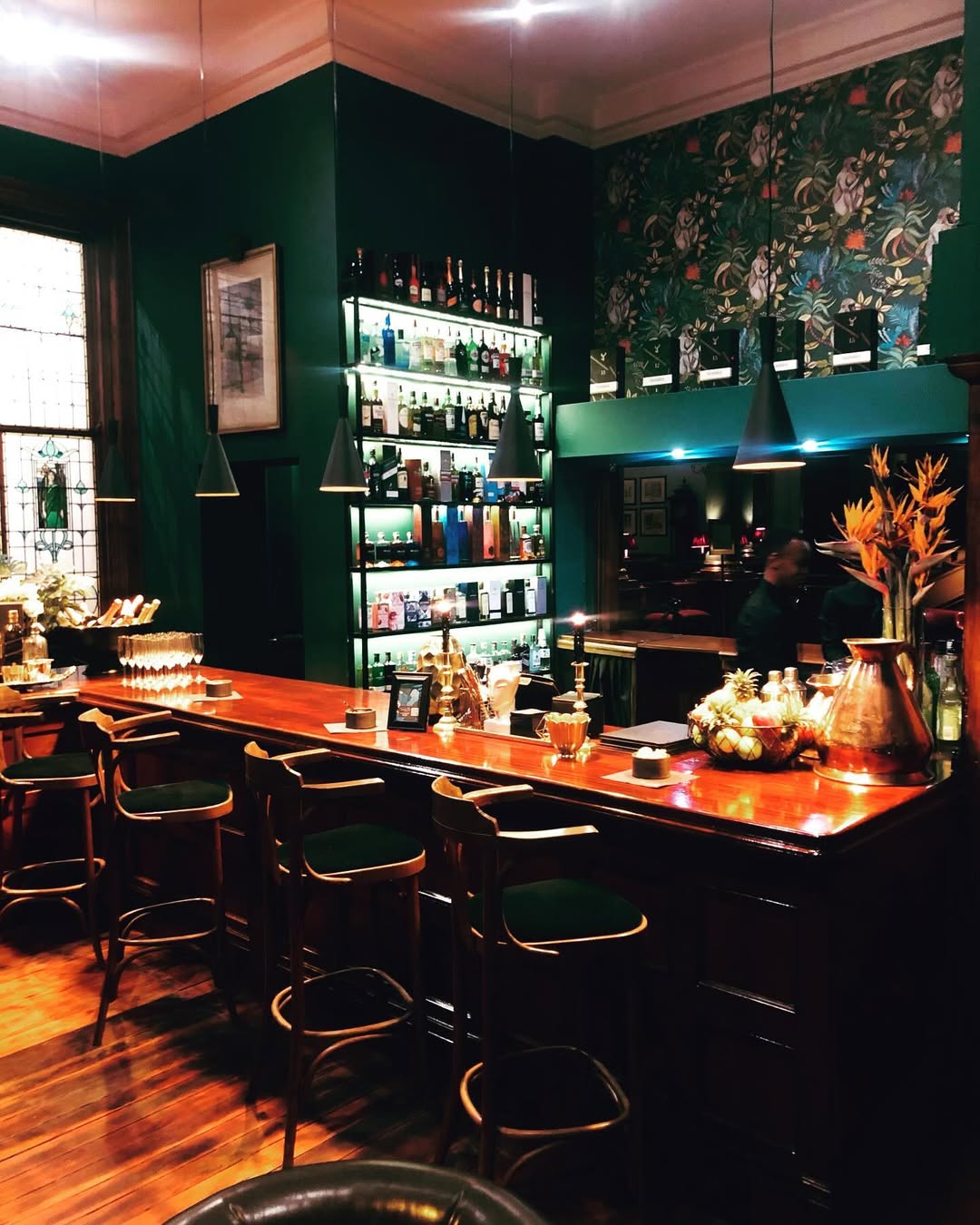
To live here is to love what frustrates you and to fight for what inspires you. This city has always lived in contradiction: Joburg is a place of decay and dynamism, of despair and design.
That’s why the real bomb squad this city needs isn’t a hand-picked team with a PR deadline. It’s made up of citizens, creators, business owners, historians, chefs, curators, and dreamers who continue to hold the line – not just for the G20, but for the soul of Johannesburg. Be one of them.


 Rand Club. Photo Rand Club via IG_m.jpg)
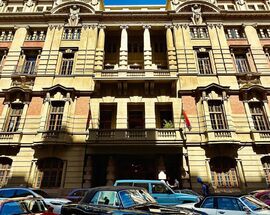
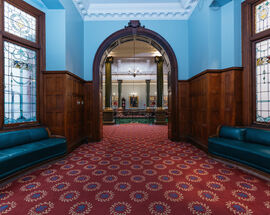


Comments